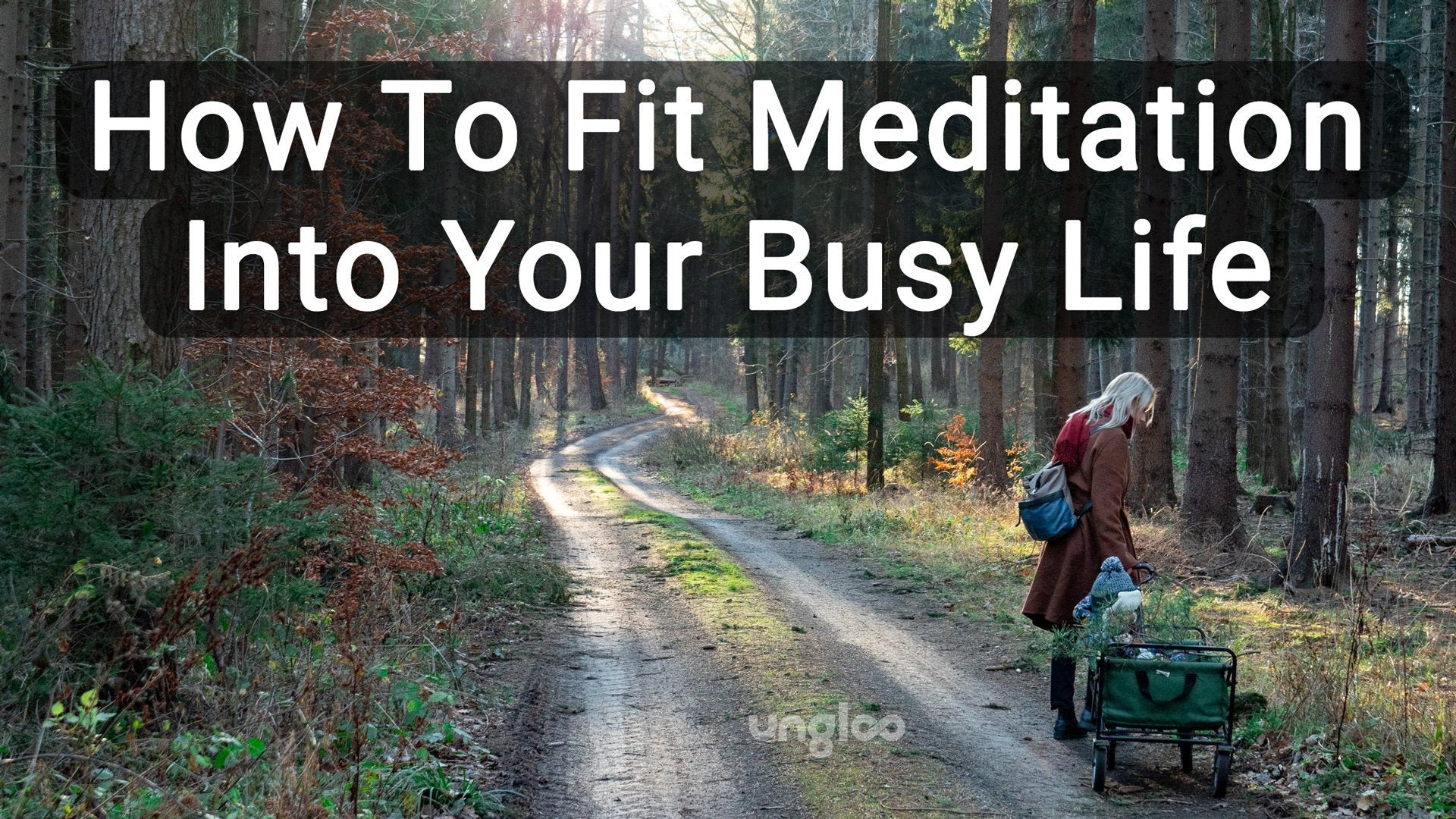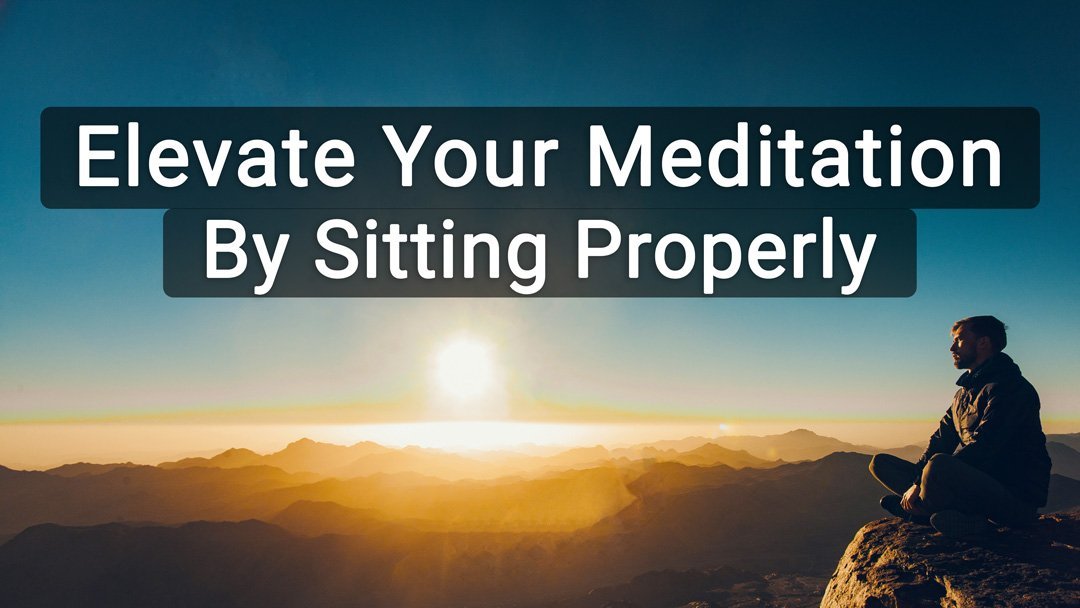Picture yourself getting ready to start a meditation session. Maybe you are new to meditation or maybe this is the hundredth time you have meditated. Either way you have been looking forward to your practice. So, you sit down and close your eyes. You start to focus on your breath. Breathe in. Breathe out. Then you hear your dog barking at the door. You let him and sit back down. You close your eyes and breathe in and out. All of a sudden someone is shouting from the other room. Your teen wants the internet turned on for a homework assignment. You turn it on and settle back in. You breathe in and out and then ugh, gross. Your dog starts licking your socks! You move him to another room, sit back down, and breathe in and out. All of a sudden, a pleasant aroma fills the air. Someone must be cooking. Is that banana pancakes? No, maybe chocolate chip cookies. Mmm, .... Wait! Back to breathing. Your lower back starts to ache. You try to bring your attention back to your meditation, but you can’t get over the pain you feel. And then your alarm goes off. You must leave for work. Your meditation time is over before it ever begins.
Have you been here before? You know the benefits of meditation. However, there are so many distractions that can prevent you from really digging in and meditating. If this is you, then know you are not alone! Life is noisy and busy and so many things are happening around us. However, that doesn’t mean we can never meditate. Sometimes it’s great practice to work through these distractions, other times it’s counterproductive and better to eliminate them from the start. So, in this article we’ll identify some distractions keeping us from reaping the benefits of meditation and solutions to remove them from our practice.
1. Noise
Noise can be from people talking, tv shows, or traffic outside. It can all be distracting and make your mind wander. To eliminate noise distracting you, start by finding a quiet setting away from the hustle and bustle. Maybe this is your room with the door shut. It might be in your work office on your lunch break. Think of what time of day this location is the quietest. Try to meditate during that time. The best time may be bright and early before everyone in your house wakes up. Or it could be at the end of your work day when most of your coworkers have left the office. Thinking ahead to find a quiet place will help you keep your mind centered. If it is too hard to find a quiet location then you can wear noise cancelling headphones. If you do not have headphones then you can play some white noise to drown out the distracting sounds. My favorite sounds to listen to while meditating are the sounds of ocean waves or wind whistling through trees. Recently, I’ve had the Calm app background nature sounds on with earbuds. Or, to find the nature sound or white noise you would like to use all you have to do is google it.
2. Smell
Smell is another sense that can trigger our thoughts to go down a path we don’t care to wander. The kitchen is full of different smells. Very distracting. If you like to meditate outside, don’t meditate by garbage cans. For some the smells that are outside can be really distracting, from fresh cut grass to smog or restaurants, it may be challenging and moving the practice inside would work the best. Be aware of the smells around you and if something is bothering or distracting you then move to a different spot.
3. Tasks/People
We all have busy lives with tasks that demand our attention. Our world is busy! If we want to meditate we need to think ahead so that our tasks or people are taken care of for the duration of our practice. I have teens so meditating in the morning is usually free of noise. But if you have young kids make sure they are napping (easier said than done), watching a show, or engaged in a fun activity. Take care of their needs beforehand like feeding them so that they won’t likely have major needs arise. If you meditate at work, look at your schedule. Is there a time of day where work is slower? Do you have a lunch break you could devote some time to meditating? Then pick these times to meditate to prevent people from interrupting your practice. You also can make a “do not disturb will be back in 10 min” sign and stick it on the outside of your door. This will let people know you are doing something important and limit the distractions. Choosing the time of day when you are least busy and proactively planning your day to create that time will greatly help you avoid interruptions.
4. Pain
Sitting for long periods of time or even just five minutes can create pain in our bodies. Achy backs, tight necks or sore shoulders are common problems. To prevent this pain, start by sitting in a comfortable position. If you have tight hips, like a lot of adults, sitting cross legged can be awfully distracting and really a hard position to stay in. If so, use a seating system or chair you like that supports your body. Ideally you want support for your hips and lower back which can be achieved with the right meditation chair with back support. Ultimately, if you can’t sit for long periods of time, try lying down. Whatever feels right for your body, do it! Don’t force yourself to sit in a traditional yogi pose to meditate if it will cause pain. That will defeat the whole purpose of why you are meditating in the first place.
So, it’s up to you. Noises, smells, tasks/people, and pain can be useful as we train our minds to be in the present moment but they can also prevent us from actually meditating at all. Meditation is a personal journey. There is no one right way. Listen to your body, be aware of distractions and move as needed. Then the next time you meditate remember what worked and what didn’t and adjust! Make sure your environment and needed tools like a chair are supporting your body and practice. I can’t guarantee your meditation practice will always be distraction free but the chances of distractions can be greatly reduced with some thinking ahead.


![4 Things that can Distract you when Meditating. [And how to avoid them]](http://ungloo.com/cdn/shop/articles/4_Things_That_Can_Distract_You_When_Meditating-692034.png?v=1635974758&width=1500)

